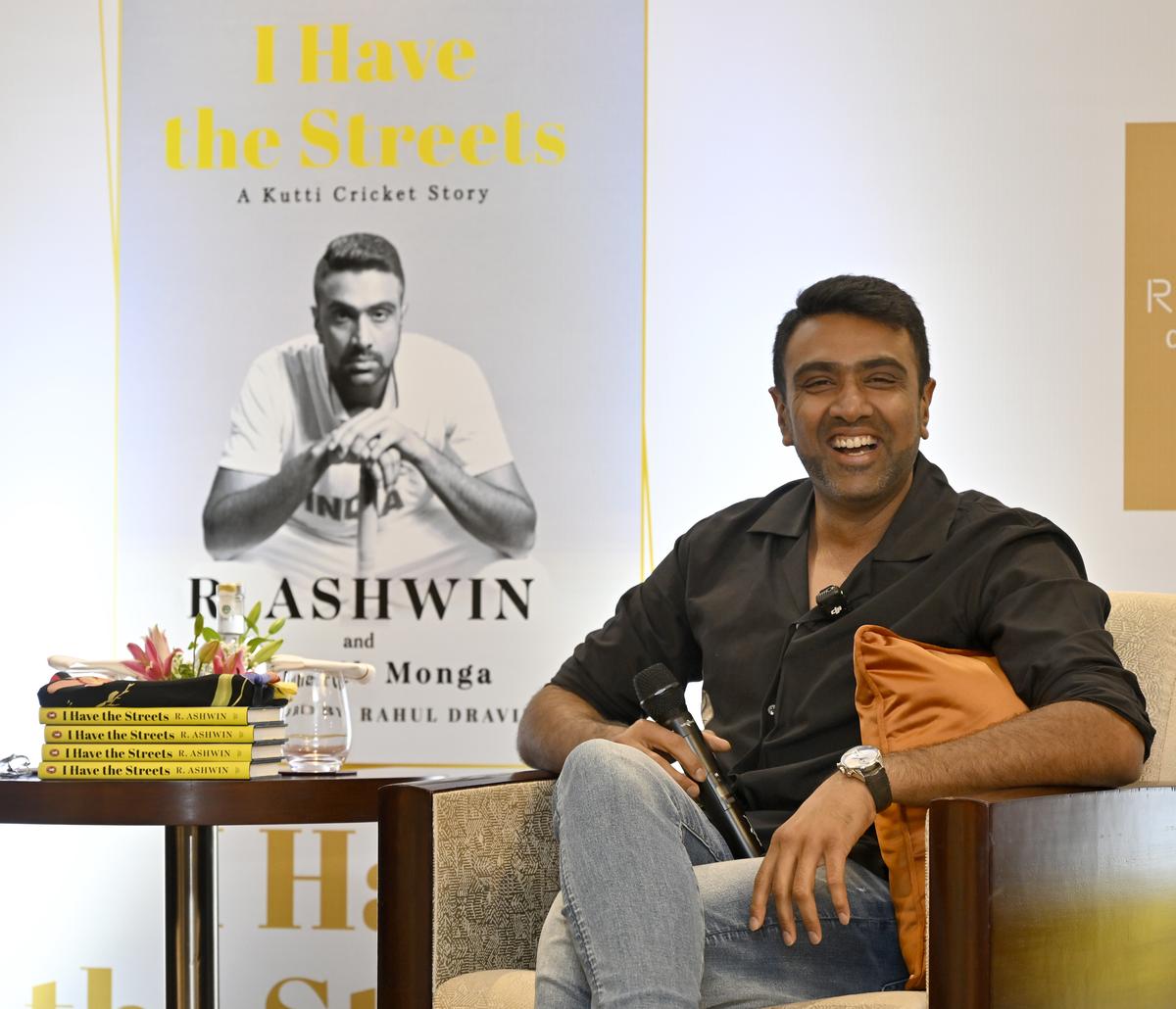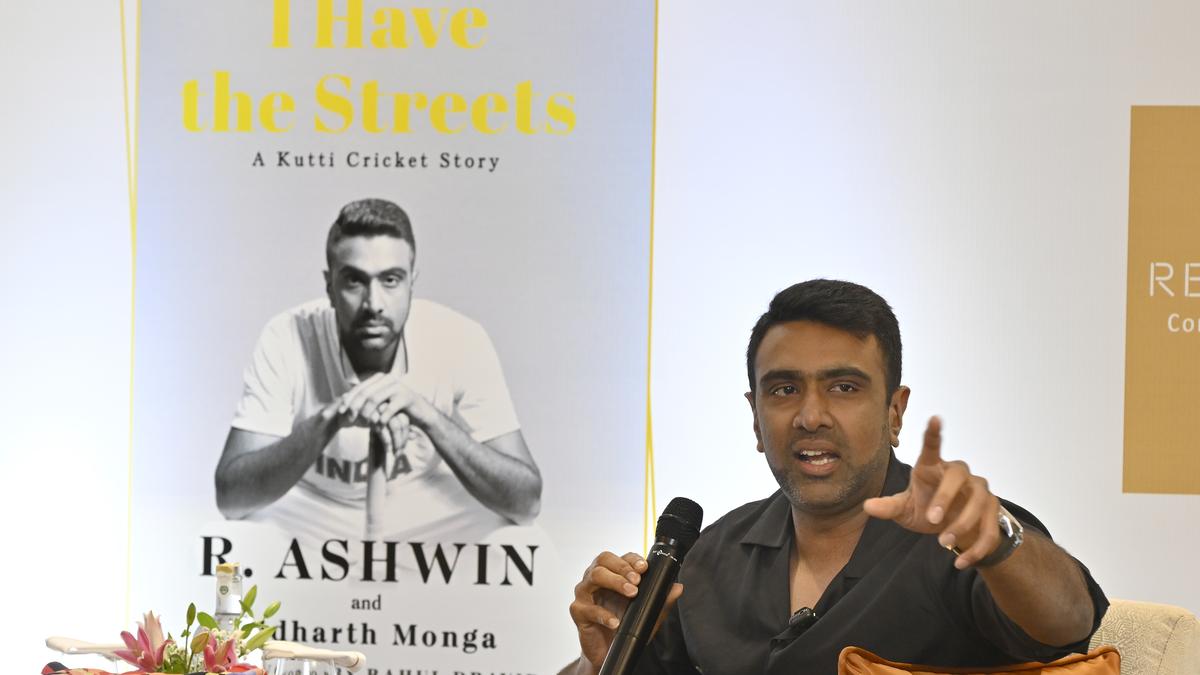R. Ashwin: Street cricket made me the person I am today
After 744 wickets in international cricket, two ICC trophies with India, and a flourishing career as a YouTuber, R. Ashwin turned to a new role on Friday.
While he responded with a gracious smile on being called an author, he was insouciant in burying the presumption at the first occurrence of the word ‘autobiography’.
“Please, do not call this an autobiography. Who am I to write an autobiography? I have just tried to take you through my story,” he said, during the launch of his book I Have the Streets – A Kutti Cricket Story, co-authored with Sidharth Monga, at the Taj Coromandel Hotel in Chennai.
“It took four years. This is one way to go back and connect to who I was. There are some very good stories that I’ve crafted very delicately because they can be misconstrued at times. My constant endeavour in this journey was that we are all living a story from which people can learn. So, I’ve tried to be as real as I can,” he added.
READ | Gambhir: If you focus on two-three people in a team, what will happen to others
Ashwin recollected his first acquaintance with the sport, which came in the bylanes of R.A. Puram, a neighbourhood in Chennai. Much before learning to conjure up tricks with his finger spin in club cricket in the city, it was batting in the streets that captured Ashwin’s imagination.
“Street cricket made me the person I am today. A lot of my batting when it comes to playing square or breaking the wrist, is because there were runs only on the offside while playing in my street. So if I hit it straight, the ball will go into my neighbour’s house, and that means you’re out,” he said.

Indian cricketer R Ashwin (right) reserved first credit for his father, Ravichandran.
| Photo Credit:
VEDHAN M
Indian cricketer R Ashwin (right) reserved first credit for his father, Ravichandran.
| Photo Credit:
VEDHAN M
His first credit, however, was reserved for his father, Ravichandran. Known for his inquisitive nature on the field, Ashwin said his forensic take on the game is the result of his father’s analytical tilt at life during his childhood.
“My father used to question everything and annoy me. The most peaceful time of the day was between 4 pm and 6 pm when I played outside. He picked this period to ask how I did my exams. The quality of his digging deep helped me big time. That inspired me to get inquisitive, to a point where I didn’t care about the reaction to my question,” he said.
Ashwin made his Indian Premier League debut at Chennai Super Kings under M.S. Dhoni in 2009. He again played under his charge in 2010 while making his India debut in One-Day Internationals. Ashwin was part of India’s World Cup and Champions Trophy winning teams in 2011 and 2013, respectively. Dhoni’s trust in players set him apart, Ashwin felt.
“We were playing Victoria Bushrangers in South Africa [in the Champions League]. So, the game went to a super over. We had a team huddle, and I raised my hand to bowl the super over. The first ball I bowled was decent. The next ball, David Hussey, played a brilliant shot. Then I started bowling quick and conceded 22 runs, and we lost the game. After the match, Dhoni said just one thing, ‘You have the variations, you should’ve backed yourself’, and that he continues to say even today. I see a bit of a fatherly figure when he says that. I failed him miserably that night, but he trusted me the next game and gave me the 17th over. And it was a game-defining over, I got two wickets and ended up as the player of the tournament,” he said.
Ashwin closed the launch event by recounting the role Gary Kirsten, India’s coach during the 2011 World Cup, played in reinforcing his belief that he belonged in international cricket. “I was going to play against Pakistan, but there was dew in practice, so they decided to go for an extra seamer. With all the noise surrounding the game, we won, and everyone started crying. Gary was also celebrating, and he came up and said, ‘I don’t think we have done justice to your talent in the last couple of years. You have waited your time. Take this from me, your work ethic and what you do, you will achieve far greater things, and I’m only upset that I will not be a part of this.‘”



